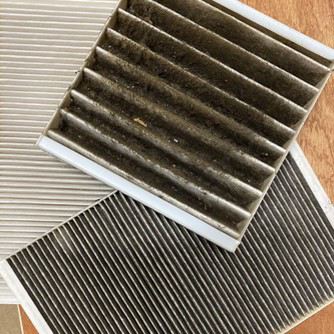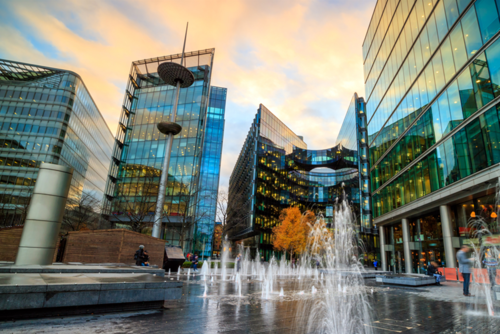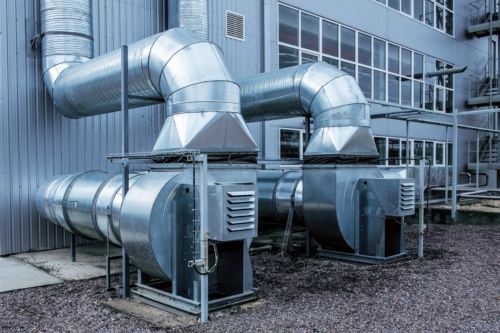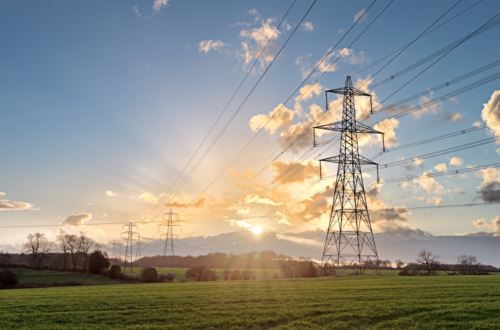What will be the response to spiralling energy prices and will it benefit or harm air quality
We have officially come to the end of summer and what a summer it has been, with the UK besieged by unprecedented temperatures, droughts, wild fires and flooding. And then there’s the energy crisis that’s set to worsen in the coming months – will this put Britain back in its efforts to reduce air pollution or boost its endeavours.
It has been England’s joint hottest summer on record, and four of the five warmest summers for England have occurred since 2003, as a direct consequence of human-induced climate change. This eye opening video shows how the earth has warmed up since 1900.
The response to hotter summers is to crank up the air conditioning (AC) or use fans to keep cool and comfortable. However, AC and fans already account for around 10 percent of the world’s electricity consumption, and they are particularly challenging for electricity grids as demand surges on hot days, often threatening blackouts if the grid can’t keep up. With extreme heat becoming commonplace during UK summer months, more businesses will need to have AC installed to keep building occupants comfortable and safe, further adding to running costs and increasing the burden on the grid and global warming.
It will be interesting to see how Governments and businesses respond to the energy crisis over the winter months as energy demand for heating and lighting increase. It would be nice to think that the energy crisis will result in less energy use across the board, that will support cleaner air. However, winter is looming, and buildings need to be heated and lit, and I fear the country will be forced to resort to unclean methods of generating energy and heating homes.
Germany has already approved measures to limit the heating of public buildings to save energy, as it tries to reduce its dependence on Russian gas. The country will limit heating in public buildings to 19 degrees and radiators in corridors, foyers and entranceways will be turned off.
The UK is much less dependent on Russian gas than European countries such as Germany, but still the National Grid has asked five coal powered power stations to be on standby to supply power to the grid over the Winter if supplies become short.
 In addition, more householders are likely to resort to wood
burning stoves to save on central heating, in fact wood sales have recently
soared. My home is powered by solar PV and a ground sourced heat pump making it
very efficient. However, I live in a rural community that relies on oil powered
heating systems and log burners. Depending on wind direction, my home’s
ventilation system often brings in smoke with the outdoor air despite the filters,
and so, the ventilation has to be temporarily turned off, and when the filters
are changed they are black with soot. This highlights the effects that burning
fossil fuels can have on both outdoor and indoor air quality.
In addition, more householders are likely to resort to wood
burning stoves to save on central heating, in fact wood sales have recently
soared. My home is powered by solar PV and a ground sourced heat pump making it
very efficient. However, I live in a rural community that relies on oil powered
heating systems and log burners. Depending on wind direction, my home’s
ventilation system often brings in smoke with the outdoor air despite the filters,
and so, the ventilation has to be temporarily turned off, and when the filters
are changed they are black with soot. This highlights the effects that burning
fossil fuels can have on both outdoor and indoor air quality.
The increase in fine particulates, gases and chemicals from the burning of fossil fuels is a danger to health, exacerbating asthma, lung and heart conditions and is already responsible for 1 in 5 deaths worldwide. In addition, if building managers are forced to reduce ventilation rates to save energy then indoor environments will also suffer, and viruses like seasonal flu and Covid-19 are likely to spread more quickly, putting more pressure on the healthcare system. And, the NHS has stated that respiratory viruses are likely to be rife this winter due to lowered immunity in the population. This means that schools are in a particularly worrying situation, as most UK schools have old buildings without mechanical ventilation and rely on opening windows instead, which means the heating will need to be turned up which is hardly ideal in an energy crisis.
As most air pollution comes from the production of energy and its use, monitoring indoor air quality including contaminants and environmental factors like temperature and humidity can help reduce the carbon emissions, when integrated with a building management system (BMS) linked to a modern HVAC system. This is possible as the IAQ sensors provide data to the BMS which is programmed to reduce heating and turn off lights in unoccupied areas and regulate both heating and ventilation rates to keep occupied areas both comfortable and well ventilated. By optimising HVAC systems in this way, we are not only able to reduce the carbon footprint of a building but also lower running costs whilst keeping the indoor environment safe and comfortable for occupants. However, like schools much of the UK’s commercial building stock does not enjoy a modern HVAC system, relying instead on recirculating AC or the opening of windows.
The UK has come so far in its attempts to cut air pollution, and this will have positive outcomes in terms of improved health and the associated reduction in healthcare costs and will also help us address the long term threat of climate change. But the energy crisis has the ability to cause air pollution to worsen over the coming months and perhaps the next few years. Government grants to help commercial buildings become more energy efficient and retrofit intelligent HVAC systems would help businesses better support energy efficiency measures and give them a fighting chance to survive the energy emergency – after all, some sectors are only just getting back on their feet after Covid.
As published in Air Quality News
Latest Articles
How the Internet of Things (IoT) is revolutionising building energy efficiency
Read More >Choosing the right green building certification
Read More >How AI technology is helping reduce energy consumption and carbon emissions in commercial real estate
Read More >Spiralling energy prices put businesses at risk
Read More >



